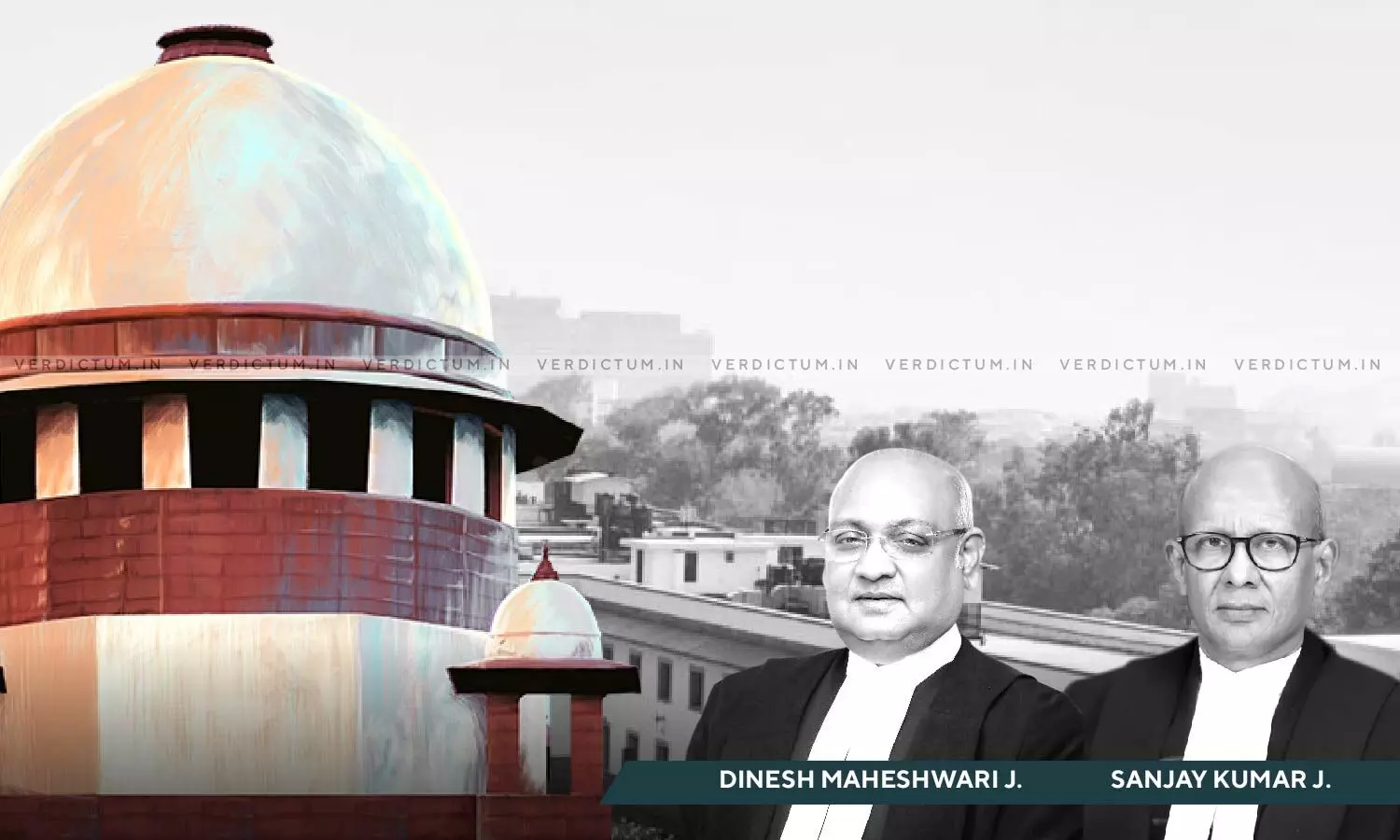
Tender Process: Action Of Imposing Penalty Without Even Putting The Party To Notice Cannot Be Approved Under Law- SC
 |
|The Supreme Court has recently held that an action of imposing a penalty by the State without even putting the party to notice cannot be approved as per the relevant provisions under the law.
The two-Judge Bench of Justice Dinesh Maheshwari and Justice Sanjay Kumar observed, “Finality attaching to the action of cancellation cannot be read as a due notice for imposition of penalty even if the respondents chose to employ the expression ‘cancelled with imposition of penalty’ in those orders. Looking to the terms of contract, quantification of the amount of penalty (if at all the penalty is considered leviable) could not have been carried out without affording adequate opportunity of response to the appellant. That being the position, the action of the respondents in imposing the penalty without even putting the appellant to notice as regards this proposed action cannot be approved.”
The Bench said that the imposition of a penalty against the appellant cannot be approved because of the want of a specific show-cause notice.
“… no specific quantum of loss has been specified by the respondents so as to justify the imposition of maximum of penalty”, further said the Court.
Senior Advocate Vinay Navare appeared for the appellant while AAG Bharat Singh appeared for the respondents.
Brief Facts -
The appellant, being a proprietorship firm, was engaged in the business of manufacturing and repairing transformers, having its plant in Bhopal (M.P.) for the past 30 years and the only customers of it were the distribution companies (Discoms). The appeals were filed by the appellant challenging the order passed by the Madhya Pradesh High Court, Jabalpur.
The High Court had partly allowed the writ petition and while maintaining the order of debarment as passed against the appellant, modified its term of operation by making the same effective from February 13, 2020, for a period of three years, instead of being effective from July 30, 2020. The appellant also challenged the order whereby the High Court dismissed the review petition against the said order.
The Supreme Court after hearing the contentions of the counsel asserted, “Having given thoughtful consideration to the rival submissions and having examined the record, we are clearly of the view that the impugned order as passed by the High Court in practically denying the principal relief claimed by the appellant cannot be approved and the writ petition filed by the appellant deserves to be allowed to the extent of annulling the effect of debarment and quashing the imposition of penalty.”
The Court further referred to the decision in the case of UMC Technologies Private Limited v. Food Corporation of India and Anr. (2021) 2 SCC 551 wherein the substance of the other relevant decisions was duly noticed by the Apex Court while explaining the principles governing such actions of debarment/blacklisting.
“… the authority concerned has proceeded to impose the maximum of penalty to the tune of 10% of the deficit supply without specifying as to why the maximum of penalty was sought to be imposed. In this regard, the relevant factors as indicated by the appellant could not have been ignored altogether. Unfortunately, the High Court has totally omitted to consider this aspect of the grievance of the appellant”, observed the Court.
The Court noted that even the order debarring the appellant for a period of 3 years for default in making the requisite supplies carries its own shortcomings and that the appellant had made substantial supplies against the purchase orders in question.
“… the High Court had had the opportunity to correct the obvious errors in its order dated 23.04.2021, particularly when the review petition was placed before it for consideration because one part of the matter (concerning penalty) was not even considered and as regards other part too, the pertinent contentions of the appellant did not acquire the requisite attention of the High Court. Unfortunately, the High Court chose to dismiss the review petition without even looking into the relevant factors, including the one concerning the impact of the communication dated 18.09.2019”, held the Court.
The Court, therefore, concluded that such debarment is annulled for all practical purposes and the order shall not operate against the rights and interests of the appellant in any future tender process.
Accordingly, the Court allowed the appeals and set aside the orders.
Cause Title- Isolators and Isolators through its Proprietor Sandhya Mishra v. Madhya Pradesh Madhya Kshetra Vidyut Vitran Co. Ltd. & Anr.